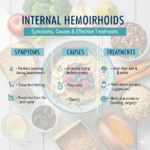Because comfort and calm are what you deserve.
Pregnancy is a beautiful journey full of excitement, change, and yes, a few unexpected discomforts. Among them, acid reflux (or that fiery heartburn) can sneak in and make even the calmest evenings feel uneasy.
If you’ve found yourself reaching for water after every meal or sitting upright long past bedtime, you’re not alone. Heartburn affects over half of all expecting moms, especially in the later months. The good news? Relief doesn’t have to come from a pill bottle.
In this post, we’ll explore gentle, natural remedies for acid reflux during pregnancy safe, soothing, and often surprisingly simple ways to bring back your comfort, one calm breath (and bite) at a time.
You’re Not Alone Heartburn Happens to the Best of Us
If you’ve ever woken up in the middle of the night feeling that warm burn in your chest, take a deep breath it’s completely normal. Acid reflux (or heartburn) is one of the most common pregnancy symptoms, especially as your little one starts taking up more space.
Hormones like progesterone relax your muscles great for making room for baby, not so great for keeping stomach acid where it belongs. Add a growing belly pressing on your stomach, and voilà: heartburn city.
📖 Mayo Clinic notes that hormonal changes and pressure from your expanding uterus are the most common culprits.
The good news? Relief is absolutely possible gently, naturally, and without needing to pop antacids at every meal.
Table of Contents
1. Sip Smart Hydrate the Happy Way
Water is your best friend, but there’s a trick to drinking it right. Big gulps can actually make reflux worse, while small, steady sips soothe your stomach.
Try this:
- Keep a bottle nearby and sip throughout the day.
- Avoid drinking too much with meals (it expands your stomach).
Feeling fancy? Brew yourself a calming cup of:
- Ginger tea – great for nausea and digestion.
- Chamomile tea – relaxes your stomach and your mind.
- DGL licorice tea – soothes mucous membranes (check with your doctor first).
Avoid peppermint tea, though. It might smell lovely but can relax the wrong muscles including the one that keeps acid down.
2. Eat Like a Queen (Just Not All at Once)
Pregnancy hunger can be real but large meals can overload your stomach and trigger reflux. Instead, treat yourself to smaller, more frequent meals throughout the day.
Gentle habits that help:
- Eat slowly and chew well.
- Sit upright for at least 30–45 minutes after eating.
- Enjoy calm, unhurried meals your digestion works best when you’re relaxed.
Happy tummy foods:
- Bananas (a natural acid buffer)
- Oatmeal (gentle and satisfying)
- Yogurt (soothing probiotics)
- Melons, greens, and whole grains
🩺 The NHS also suggests eating smaller portions and staying upright after meals to ease pregnancy heartburn.
3. Know Your Triggers (and Outsmart Them)
Let’s be honest pregnancy cravings don’t always make digestion easy. But knowing your triggers helps you enjoy food without regret later.
Common culprits:
- Fried or greasy foods
- Tomato sauces, citrus fruits
- Coffee, chocolate, and soda
- Spicy meals
Gentle swaps:
- Baked instead of fried
- Sweet apples instead of oranges
- Herbal tea instead of coffee
- Fresh herbs instead of hot spices
A little experimentation goes a long way. Keep a food journal if you’re unsure what’s setting you off.
4. Sleep Like a Pro (and Let Gravity Help)
The way you sleep matters. Try:
- Left-side sleeping: Helps digestion and improves circulation.
- Elevating your upper body: Use pillows or a wedge to keep your chest higher than your stomach.
- No bedtime snacking: Give your body at least two hours after your last meal before lying down.
Your future self (and your esophagus) will thank you.
5. Try Gentle Natural Helpers
Some natural remedies can offer real comfort safely. Just always run new supplements by your healthcare provider first.
Gentle helpers:
- A small glass of aloe vera juice (choose a purified, food-grade version).
- Chewing sugar-free gum to boost saliva and neutralize acid.
- Calcium-rich snacks like yogurt or a little warm milk before bed.
💡 The American Pregnancy Association suggests starting with lifestyle and dietary changes before considering medications.
6. Skip These Habits That Sneakily Make It Worse
Sometimes the simplest changes bring the biggest relief:
- Avoid tight waistbands or shapewear.
- Don’t lie down right after eating.
- Limit caffeine and carbonated drinks.
- Stop eating 2–3 hours before bed.
Think of it as giving your digestion a little breathing room.
7. When to Call Your Doctor
If your heartburn becomes frequent, painful, or interferes with eating and sleeping, it’s time for extra help.
Reach out to your doctor if you notice:
- Pain that won’t go away
- Trouble swallowing
- Vomiting blood or dark material
- Weight loss or dehydration
There are safe pregnancy-friendly treatments your provider can recommend so don’t suffer in silence.
A Loving Reminder
Pregnancy heartburn is temporary and you’re doing an amazing job. These small, mindful tweaks can make a big difference in your comfort.
Every pregnancy is unique, so listen to your body, stay kind to yourself, and celebrate the small wins (like enjoying dinner without the burn!).
Relief is within reach gently, naturally, and with love for the body that’s creating new life.
FAQs Gentle Natural Remedies for Acid Reflux During Pregnancy
1. Is ginger safe for acid reflux during pregnancy?
Yes in small, food-based amounts like tea or fresh slices. Ginger helps soothe nausea and supports digestion, which can ease reflux. However, concentrated supplements should only be used with your doctor’s approval.
📖 Source: American Pregnancy Association
2. Can milk help relieve heartburn while pregnant?
Sometimes! A few sips of low-fat milk or a spoonful of yogurt can help neutralize acid for some moms-to-be. But dairy doesn’t work for everyone if it worsens your reflux, try plant-based options instead.
3. Are antacids safe to take during pregnancy?
Most simple antacids are considered safe, but it’s important to check with your healthcare provider first. Avoid antacids containing sodium bicarbonate or magnesium trisilicate, which may not be suitable during pregnancy.
📖 Source: Mayo Clinic – Heartburn During Pregnancy
4. Why does acid reflux get worse in the third trimester?
As your baby grows, your uterus pushes up on your stomach, increasing pressure and making reflux more likely. Hormonal changes also keep that valve between your stomach and esophagus relaxed.
📖 Source: American Pregnancy Association – Heartburn During Pregnancy







Leave a Reply